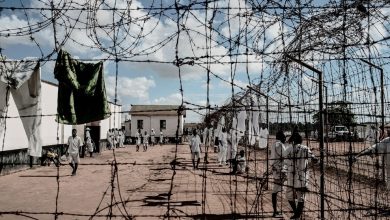The more things change
After months of waiting for President Peter Mutharika to shock us with a stellar cast of board members for the ailing and near death of the country’s parastatals, it must have been with a surprise indeed to find that he had no intention of pleasing anyone, but the party loyalists and cronies who have made it once again to head statutory corporations.
What Mutharika has done is as good as leafing through the parastatal reforms as recommended by the now defunct Public Service Reform Commission (PSRC) and setting it on fire the George Chaponda office style and obliterating its existence to ashes.
The chairperson of the Commission Vice-President Saulos Chilima knew that poor performance of parastatals had been rightly attributed to the composition of the boards which have ruling party cronies, traditional leaders and friendly civil society organisations with little experience in the sectors they oversee.
He promised Malawians that with the oncoming board the ‘appointing authority’ meaning his boss, the President would ensure that the right people with right experience head the parastatal boards.
At the heart of turning parastatals from the ruling party milking cows should be the board members that lead them, individuals with a track record in finance management not some chief whose main purpose for attending a board meeting in Lilongwe and Blantyre would be to partake in bacon and sausage at a hotel and pocket allowances.
What significant changes reverends and pastors make to a board apart from making it mandatory that board meetings begin and end with a prayer?
What would known DPP cadets who have made it a career of attacking dissenting views and freedom of expression on social media make to a board like Air Cargo Ltd and Malawi Bureau of Standards?
This tendency to reward a barking dog which opens its mouth at a mere rustle in the bush must come to an end.
When traditional leaders are appointed to parastatal boards, is the President, and that person who slips the paper of names on his in-tray banking on the reverence they will receive in board meetings to propel a good financial outturn?
Or like the DPP cadets their appointment is a reward for ‘supporting the government of the day’?
The parastatal reforms have shown that it is the leadership and the boards, which have turned the statutory corporations into the non-performing entities they have become since Kamuzu Banda made his conceding speech in 1994.
Every president since then has made the parastatals his and her own cash cow, abusing their resources and milking them dry.
The board was busy enjoying allowances when the Small and Medium Enterprise Development Institute (Smedi) boss was helping himself to government subventions at the expense of local would-be entrepreneurs.
Where was the Electricity Supply Commission of Malawi (Escom) board when dubious contracts went to a politician known for not fulfilling tenders?
The Southern Region Water Board and Lilongwe Water Board was right there when the internal procurement committees made a mess of funds from the European Investment Bank (EIB).
Where is the Malawi Broadcasting Corporation (MBC) board when the Director General (DG) can order a blackout on individuals he seems undesirable as if the organisation runs on tomato sales from his home?
Where were the board members of Roads Authority (RA) and Malawi Energy Regulatory Authority (Mera) when a road construction tender went to its own chief executive officer and billions of kwacha were lost to Admarc in the name of buying maize?
When Mutharika approved the parastatal reforms two years ago, he asked them to be apolitical and find ways of generating their own income to ease pressure on Treasury.
How he expects the 60 plus SC boards full of chiefs, cadets, ‘civil society’ handclappers and church leaders with dubious education backgrounds to remain apolitical and finally start making money is the joke of the week. n


